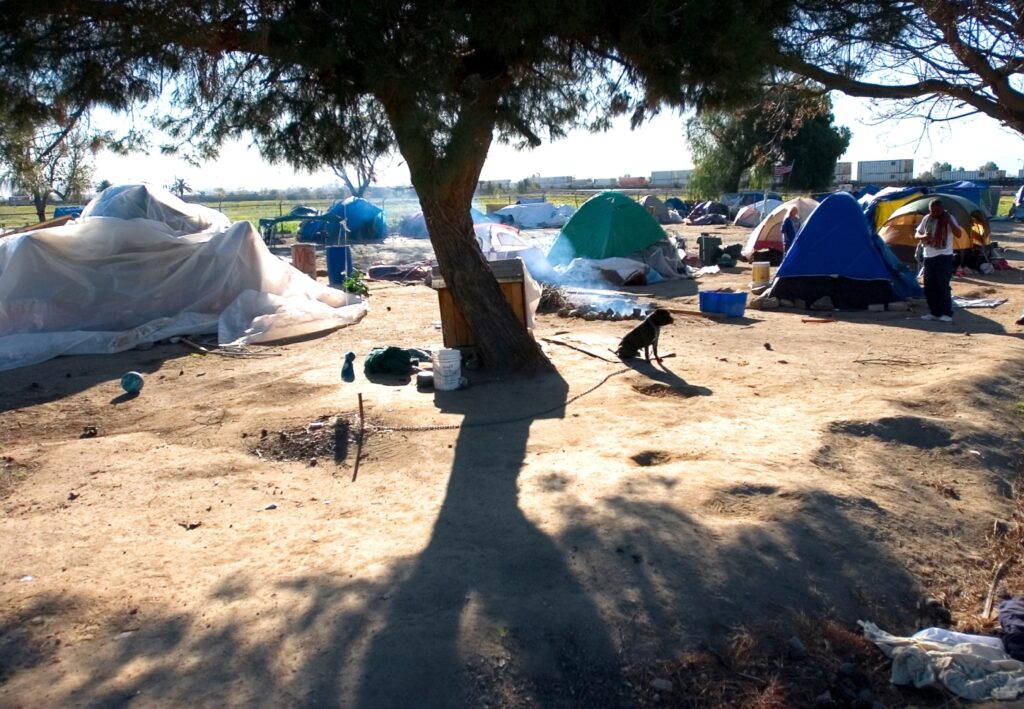
While it deals with the stubborn COVID-19 pandemic, California is also contending with a smorgasbord of equally resilient social pathologies, including chronic illness, homelessness, poverty, drug and alcohol abuse, mental illness and street crime.
State and local governments have created programs to ameliorate the effects of these maladies, but they generally operate in silos, each aimed at a particular condition without overt coordination with others, even though the persons they serve very often have multiple issues.
For example, a homeless person not only lacks shelter, but is poor and likely to have medical problems and suffer from mental illnesses, alcoholism and/or drug addiction that involves the criminal justice system.
Moreover, official approaches have largely been passive, offering sufferers opportunities to improve their lot, but, except in rare circumstances, not requiring them to cooperate.
The 2022-23 state budget that Gov. Gavin Newsom proposed last week signals that the state will begin approaching chronic social problems differently, integrating services with the goal of “whole person care,” intervening more aggressively and, in some cases, taking charge of those whose lives are out of control.
The centerpiece of this new approach is called “California Advancing and Innovating Medi-Cal” or CalAIM for short, which Newsom celebrated it as a “once-in-a-generation opportunity to completely transform the (Medi-Cal) system in California” when he signed enabling legislation. Medi-Cal, California’s medical care system for the poor, has 14-plus million enrollees, more than a third of the state’s residents.
CalAIM is described in the budget as “a framework that encompasses a broad-based delivery system, program, and payment reform across the Medi-Cal program (that) recognizes the opportunity to move the whole person care approach that integrates health care and other social determinants of health, to a statewide level with a clear focus on improving health and reducing health disparities and inequities, including improving and expanding behavioral health care.”
“Past research indicates that the highest‑cost (Medi-Cal) enrollees typically are being treated for multiple chronic conditions (such as diabetes or heart failure) and often have mental health or substance use disorders,” the Legislature’s budget advisor, Gabe Petek, says in one analysis of CalAIM. “Costs for this population often are driven by frequent hospitalizations and high prescription drug costs. In some cases, social factors like homelessness play a role in the high utilization of these enrollees.”
With Medi-Cal serving such a huge chunk of the state’s population, CalAIM could have massive societal effect – especially since it envisions a much-expanded role. For example, insurance companies and other Medi-Cal providers will assign personal care managers for their clients, not only to monitor their medical care, but to improve other aspects of their lives, such as housing and income support.
Related Articles
Bipartisan bill throws money at fire problem
The politics of scapegoating Proposition 47
Newsom vows to spend big, reform little
Biden’s not Trump, but that’s no longer good enough
After recall flop, Gavin Newsom can cruise to re-election
The state’s new approach will also affect California’s criminal justice system, which has been evolving away from punishment and toward rehabilitation for the past decade. Newsom is also proposing that before being released from prison, inmates be enrolled in Medi-Cal and thus have a broader array of supportive services.
That automatic enrollment is emblematic of the more activist, or intrusive, attitude Newsom is advocating and another example could be a huge change in mental health. During his budget press conference, he hinted again that he wants to subject those with severe mental illnesses to a “conservatorship” process that could compel them to be housed and treated, rather than allow them to roam the streets.
These are huge changes of direction in medical and social services by a state that doesn’t have a positive track record of managing high-concept policies. We can only wait to see whether it works.
CalMatters is a public interest journalism venture committed to explaining how California’s state Capitol works and why it matters. For more stories by Dan Walters, go to calmatters.org/commentary.
